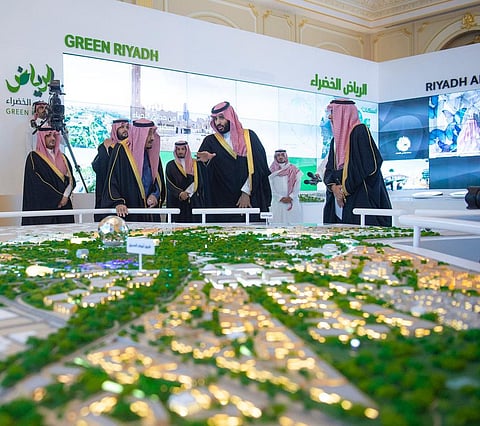

The UK will host the 26th UN Climate Change Conference of the Parties (COP26) in Glasgow on 31 October – 12 November 2021.
It is now indisputable: The planet is getting hotter, and unless governments take immediate action to cut greenhouse gas emissions; dramatic changes to the climate will become irreversible. That was the verdict of the world's foremost climate scientists in a report published earlier this month.
To prevent a global temperature rise of more than 2 C by the year 2030; scientists believe governments must substantially cut their carbon emissions — and fast.
The effects of climate change are especially clear in the Arab states of the Middle East and North Africa region; where drought and temperatures in excess of 50 C have now become the norm.
Over the past 40 years alone, average temperatures in Saudi Arabia have risen by more than 2 C; three times the current global average.
"Global average temperatures can be misleading because they hide local temperature increases," Natalia Odnoletkova, a Ph.D. student at Saudi Arabia's King Abdullah University of Science and Technology majoring in earth sciences, told Arab News.
"Based on research, we concluded that the rate of temperature increase in Saudi Arabia is drastic. This is what people often misunderstand. When we speak in the context of just 1 degree, we should understand that global average temperature can be misleading."
Perhaps the biggest environmental challenge facing the Kingdom and other MENA countries is water scarcity. Underground aquifers are not replenishing fast enough to meet commercial and industrial demand, while desalination techniques and foreign imports are damaging and unsustainable.
In response to mounting calls on all governments to act, the Kingdom ratified the Paris Agreement in November 2015 and communicated to the UN Framework Convention on Climate Change its intention to cut up to 130 million tons of CO2 emissions by 2030.
Early last year, analysis by the King Abdullah Petroleum Studies and Research Center showed that Saudi Arabia has become the third-fastest reducer of emission from fuel consumption among G20 countries.
It found that CO2 emissions in the Kingdom had fallen by 26 million tons — down some 4.4 percent over the previous year.
Even if societies move away from fossil fuels, there is no guarantee temperatures will remain stable enough for the planet to cool. Governments will also have to invest in restoration to repair the damage inflicted on the environment over many decades.
Saudi Arabia announced in April earlier this year joining the United States; Canada; Norway; and Qatar in forming a new platform for oil and gas producers. This is to discuss how they can support the implementation of the Paris Agreement on climate change.
The world's biggest crude exporter, will be part of the new "Net Zero Producers Forum"; which will discuss ways to achieve net zero carbon emission targets to limit global warming.
A Ministry of Energy source said Saudi Arabia is committed to the full implementation of the Paris Agreement, SPA reported.
Saudi Arabia's Crown Prince Mohammed bin Salman said in the past the kingdom aims to reduce its carbon emissions; by generating 50% of the country's energy from renewables by 2030.
